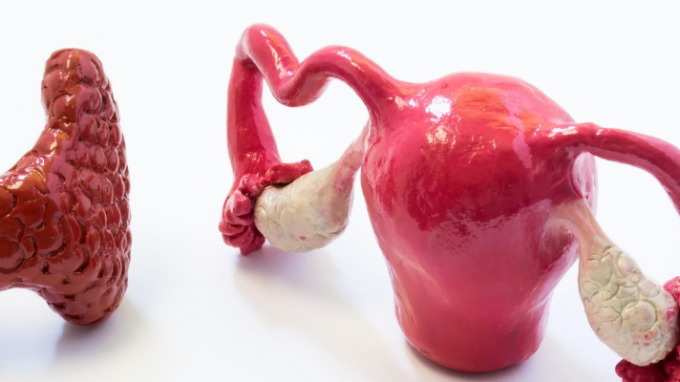Hypothyroidism is a condition in which the thyroid gland produces insufficient amounts of important hormones that are critical to normal fertility.
During testing for infertility, doctors may look into a number of issues, including hormone production. Hypothyroidism and infertility are known to be linked, so your doctor may order tests to determine if your thyroid gland is producing sufficient amounts of hormones that help to support conception, gestation and birth.
What Is Hypothyroidism?
The thyroid gland is located at the base of the neck. It is a butterfly-shaped organ that produces hormones that regulate how the body uses energy and controls a number of metabolic functions. The thyroid gland aids breathing, the nervous system, heart function, body temperatures, muscle strength, cholesterol levels, body weight and menstrual cycles. Without the appropriate amounts of thyroid hormones, individuals may begin to experience a variety of symptoms, such as sensitivity to cold, fatigue, problems concentrating, dry hair, heavy periods, muscle or joint pain and troubling sleeping. Depression is another common symptom associated with poor thyroid function. However, many individuals have symptoms that are so minor that they may not realize they have a problem that is connected to their hormone levels.
Hypothyroidism and Infertility
A number of studies find that low thyroid levels are common in women who are experiencing infertility. An imbalance of these hormones can also disrupt the function of the female hormone estrogen, which is essential to conception and successful gestation. Because thyroid hormones are so critical to other hormones involved in conception, pregnancy and birth, testing for thyroid problems has become a standard part of infertility testing and treatment.
 Causes of Hypothyroidism
Causes of Hypothyroidism
Hypothyroidism is a common problem among women who are having difficulty trying to get pregnant. In some cases, heredity factors may cause poor thyroid function. Some individuals may develop autoimmune system disorders that affect their ability to produce normal levels of thyroid hormones. Individuals who have been treated with radiation for cancer of the head or neck may develop problems with thyroid hormone production. Surgery on the thyroid gland can cause decreased levels of hormones. Some medications, such as lithium, can affect the thyroid gland. Problems of the pituitary gland can, in turn, affect the thyroid gland. Deficiency of iodine levels in the body can also cause thyroid problems.
How Are Low Levels of Thyroid Hormones Diagnosed?
Thyroid levels are generally determined by blood tests, which detect varying levels of hormones in the bloodstream. This process can help to measure the levels of thyroid stimulating hormone (TSH), T3 and T4 factors in the body. Measuring thyroid antibodies in the blood, along with other diagnostic measures, can also help physicians determine the cause of the thyroid deficiency.
Treatment of Hypothyroidism To Improve Fertility
Thyroid medications are available to supplement thyroid hormone levels in the body in order to provide better support for conception and carrying a pregnancy to term. Because thyroid levels fluctuate during pregnancy, your doctor may do thyroid testing throughout the terms and may adjust medication as needed to maintain normal levels of thyroid hormones.
The link between hypothyroidism and infertility is one that should be carefully investigated by your physician. If you are trying to start your family and have problems with infertility, comprehensive thyroid testing and treatment can be an important part of the measures taken to help you achieve your goals.





